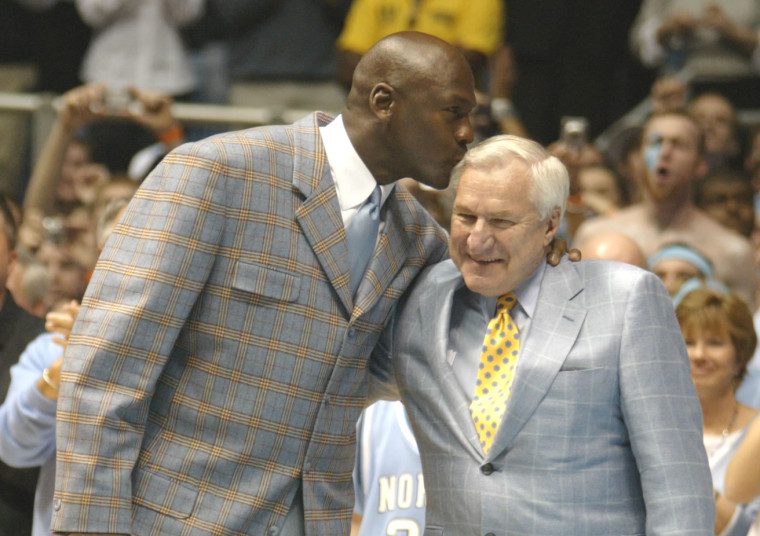In the days since the death of legendary University of North Carolina coach Dean Smith, countless stories have made their way into print, on the air, and in social media. We’ve heard about his extraordinary career, the 879 wins that gave him the Division I men’s record at the time. We’ve heard about his emphasis on loyalty and teamwork that has come to be known as the Carolina Way. We’ve heard from his former players—including his best-known protégé, Michael Jordan—how he inspired them to be better people, and from his colleagues and neighbors about his huge heart and spirit.

My own connection with Smith is secondhand: My father, who coached basketball for more than 20 years, occasionally attended coaching clinics taught by Smith. He always returned impressed by Smith’s expertise and leadership strength, and just as impressed with his demeanor. “Class” is the word I most remember hearing Dad use to describe him.
In a profession known for outsized egos, Smith worked to keep the spotlight off himself. His staff knew that whatever he was doing, he was to be interrupted if a player—any player, for any reason—needed to see him. When he learned in 1986 that UNC’s new basketball arena was going to be named for him, his response was, “They should name it for the players. I never scored a single point.”
One of Smith’s most important contributions was the way he used the influence of his position—not for more money or personal recognition, but to do good. Even in the years before he recruited Charles Scott, who became UNC’s first African-American scholarship player and one of the first black athletes to sign at a major southern school, Smith was leveraging his position to make the world around him a better place. Horrified to see segregated restaurants when he first came to Chapel Hill as an assistant coach, he and his pastor devised a plan where he’d go out with black church members to restaurants where he was known, where his presence would hopefully ensure they would be served.
Sportswriter John Feinstein recalls Smith’s discomfort when he uncovered that story years later: “And I said, Dean, why? … You should be proud of being involved in something like that. And he looked at me, and he said, ‘John, you should never be proud of doing the right thing. You should just do the right thing.’”
- Excel at what you do.
- Communicate your values clearly.
- Be humble and quick to yield the spotlight.
- And quietly commit to doing the right thing.
Whatever our position or sphere of influence, we can all learn about building a legacy from Dean Smith’s example.
Sources: USA Today | Washington Post
Image Credit: Zeke Smith from Chapel Hill, NC via Wikipedia
